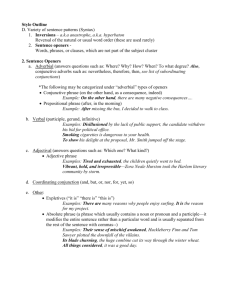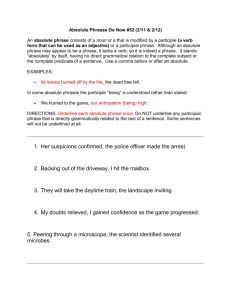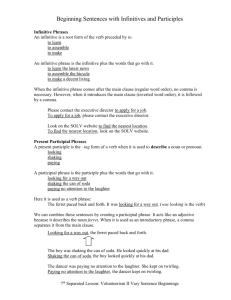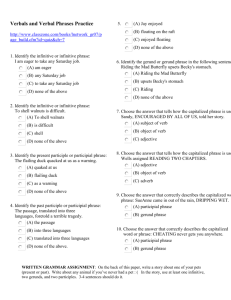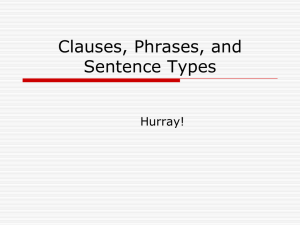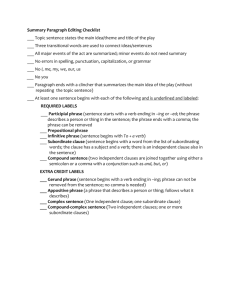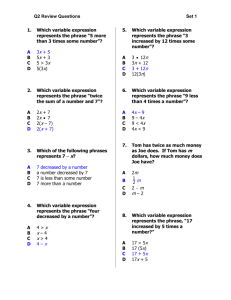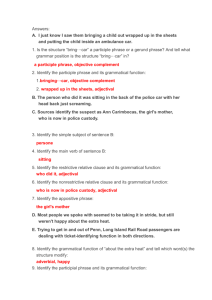SentenceOpeners
advertisement
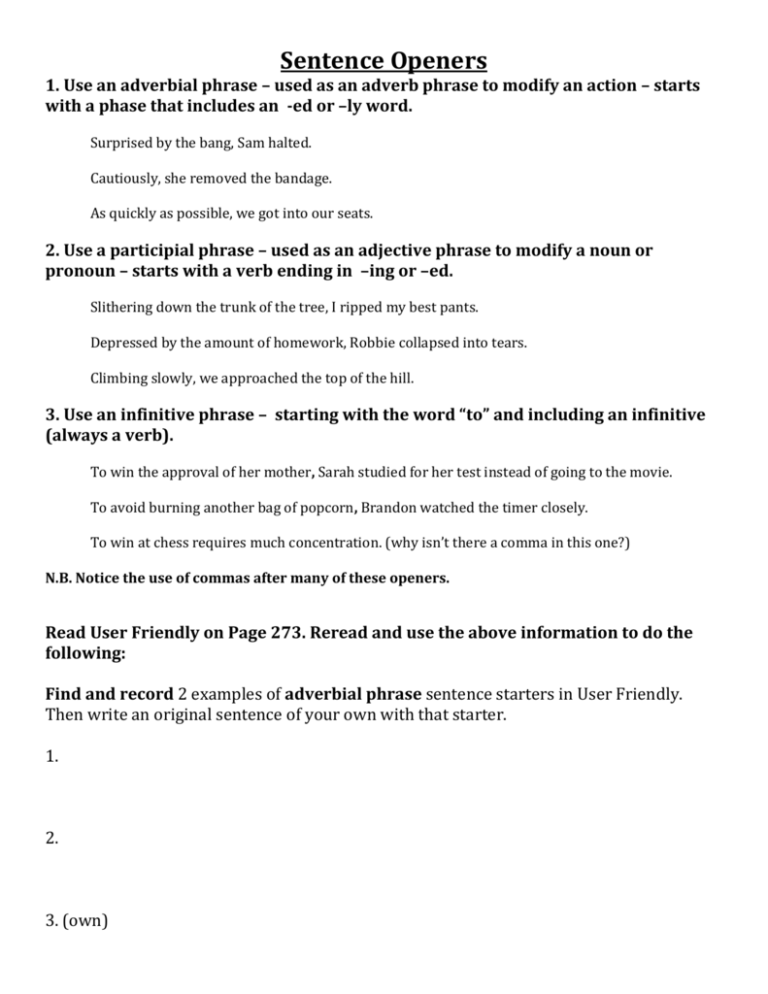
Sentence Openers 1. Use an adverbial phrase – used as an adverb phrase to modify an action – starts with a phase that includes an -ed or –ly word. Surprised by the bang, Sam halted. Cautiously, she removed the bandage. As quickly as possible, we got into our seats. 2. Use a participial phrase – used as an adjective phrase to modify a noun or pronoun – starts with a verb ending in –ing or –ed. Slithering down the trunk of the tree, I ripped my best pants. Depressed by the amount of homework, Robbie collapsed into tears. Climbing slowly, we approached the top of the hill. 3. Use an infinitive phrase – starting with the word “to” and including an infinitive (always a verb). To win the approval of her mother, Sarah studied for her test instead of going to the movie. To avoid burning another bag of popcorn, Brandon watched the timer closely. To win at chess requires much concentration. (why isn’t there a comma in this one?) N.B. Notice the use of commas after many of these openers. Read User Friendly on Page 273. Reread and use the above information to do the following: Find and record 2 examples of adverbial phrase sentence starters in User Friendly. Then write an original sentence of your own with that starter. 1. 2. 3. (own) Find and record 2 examples of participial phrase sentence starters in User Friendly. Then write an original sentence of your own with that starter. 1. 2. 3. (own) Find and record 2 examples of infinitive phrase sentence starters in User Friendly. Then write an original sentence of your own with that starter. 1. 2. 3. (own)
